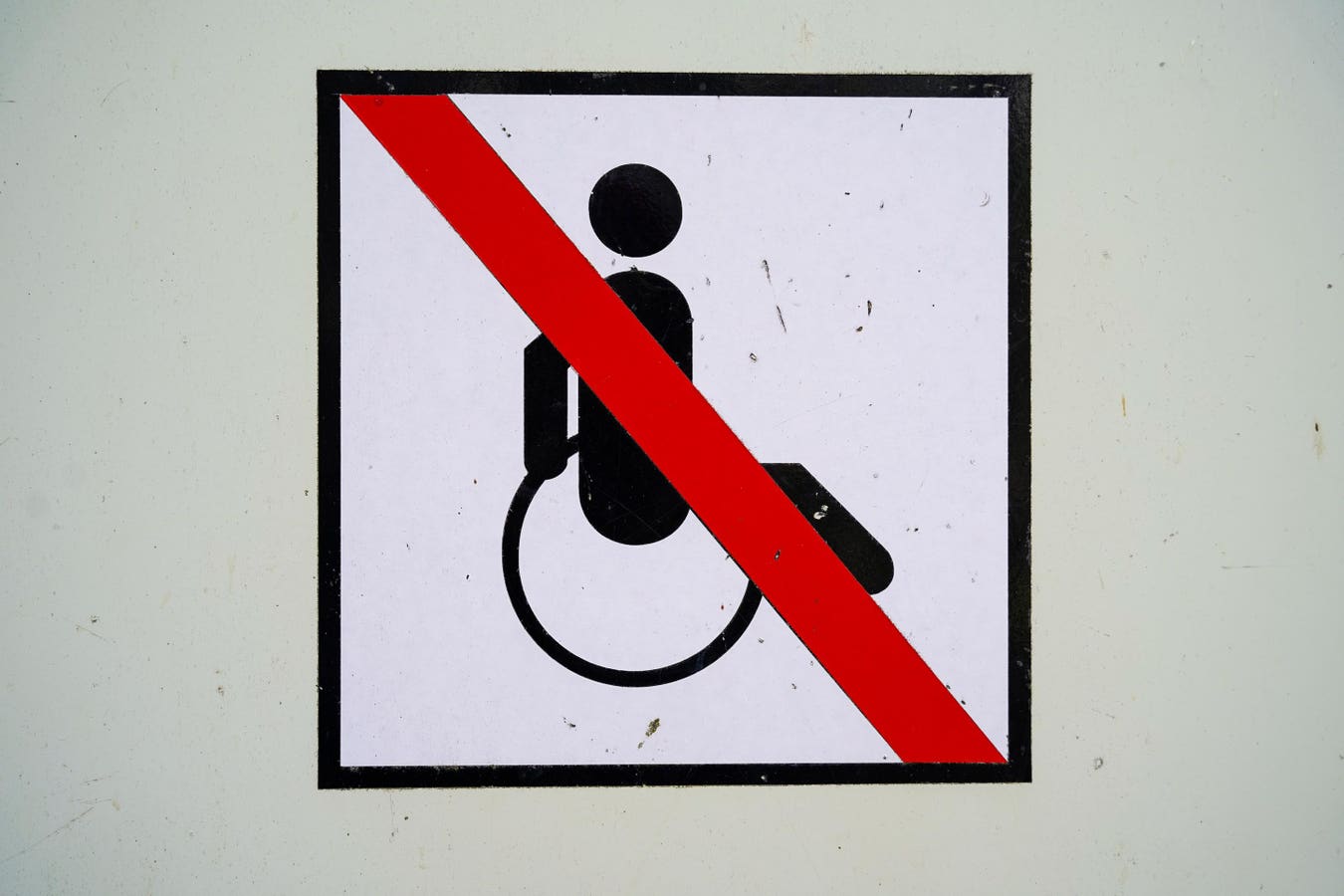A wheelchair sign with an X on it for people with disabilities.
Getty
Later today, the campaign for the UK general election, scheduled for 4 July, is set to heat up with the first televised leaders’ debate between Chancellor Rishi Sunak and Labour leader Keir Starmer.
Mr Sunak announced his intention to hold a poll into the Conservatives’ 14 years in power two weeks ago and since then a range of policies have been mooted by both sides, from making national service compulsory for young people to ending tax cuts for wealthy private schools.
Silenced Voices
But one sizable minority group, making up a quarter of the UK population, has been conspicuously absent from the pre-election political debate so far: the disabled community, despite this group having been among the hardest hit in recent years by both the Covid-19 pandemic and the cost of living crisis that followed in its wake.
Yesterday the chief executive of the UK’s leading disability organisation slammed politicians for excluding disabled people from policy debates and pledges. Kamran Malick, chief executive of the Disability Rights Association, told the Mirror: “Those standing for election seem to be living in a parallel world if they cannot vocally recognise a quarter of the population. It is astonishing and appalling that the needs of a quarter of the population have yet to be included in the campaigns of any of the major parties in this general election.”
Malick continued: “Political parties need to talk about wealth creation but also recognise that they need to address the poverty that is so ingrained in society. And while they are competing for votes, they need to loudly admit that when they talk about poverty, they are essentially talking about people with disabilities.”
He continued: “They have to talk about how they are going to change things for us, to go from being the most ignored and least mentioned minority group to being recognised as a quarter of the population and a group that is in desperate need of a level of support that will help us thrive and contribute to society.”
Delight the crowd
To discern why disabled people have been absent so far from mainstream pre-election political debates, it is useful to look at this through the lens of a broader political framework. Yes, disabled people are a large minority, but they are a minority nonetheless. Thus, when politicians speak or don’t speak about disability, it is usually aimed at mainstream non-disabled people. In this context, disabled people are seen as a problem to be solved, rather than a community to be celebrated, supported and protected where necessary. Typically, this is wrapped up in positive ideas like getting more disabled people back to work and off welfare. However, when we dig beneath the surface, there is too much emphasis on the latter aspect, often with punitive overtones, without a realistic appreciation of the real barriers that countless disabled people face in seeking and maintaining gainful employment.
This is a point emphasized by Malick, who said: “We are repeatedly told that it is our fault, that we need to be ‘encouraged’ to get off welfare and go back to work. Many disabled people are deeply in debt because welfare does not cover even the most basic expenses. For anyone who takes these words and assumptions at face value and does the math, it is inconceivable that anyone who has a choice would stay on welfare.”
Indeed, as the campaign progresses, it feels like the voice that can elicit some of the important conversations the UK needs to have about the quarter of British people who too often live in the shadows, and make the debate meaningful and authentic, will have to come from within the hearts and minds of the disabled community itself.

